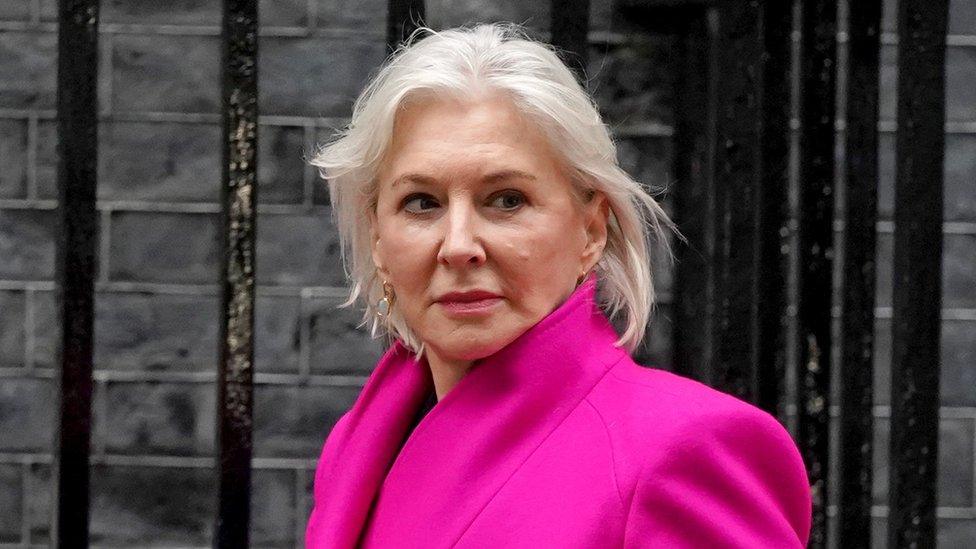Mid Bedfordshire: Could rising costs affect by-election?
- Published
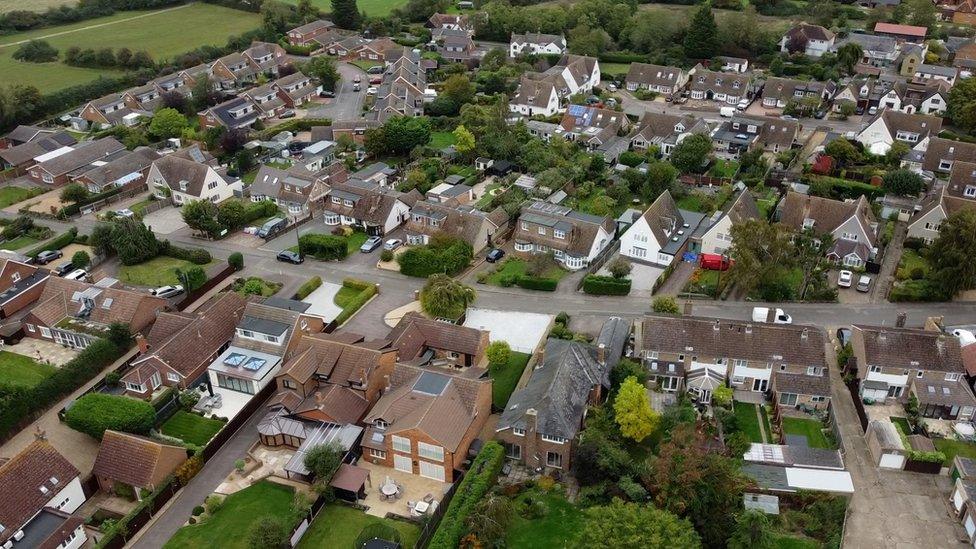
Mid Bedfordshire has a higher proportion of homes that are owned with a mortgage than almost anywhere else in England and Wales
Mid Bedfordshire will choose a new MP on 19 October. The constituency enjoys higher wages and has more economically active people than average, but a high proportion of its homes are owned with mortgages. So with interest rates at their highest since 2008, how much might the cost of living weigh on voters' minds?

'It's crazy, absolutely crazy'
Jade Gilbert, 33, started saving for a house when she was 19.
Six years ago, she and her husband bought a place in the Mid Bedfordshire village of Marston Moretaine.
In a few weeks' time, repayments on their mortgage will increase by £500 a month.
"It's crazy, absolutely crazy," said Mrs Gilbert, who works as a mobile hairdresser.
Mrs Gilbert also runs Little Pops stay-and-play group in Lidlington, which is named after her five-year-old daughter Poppy.
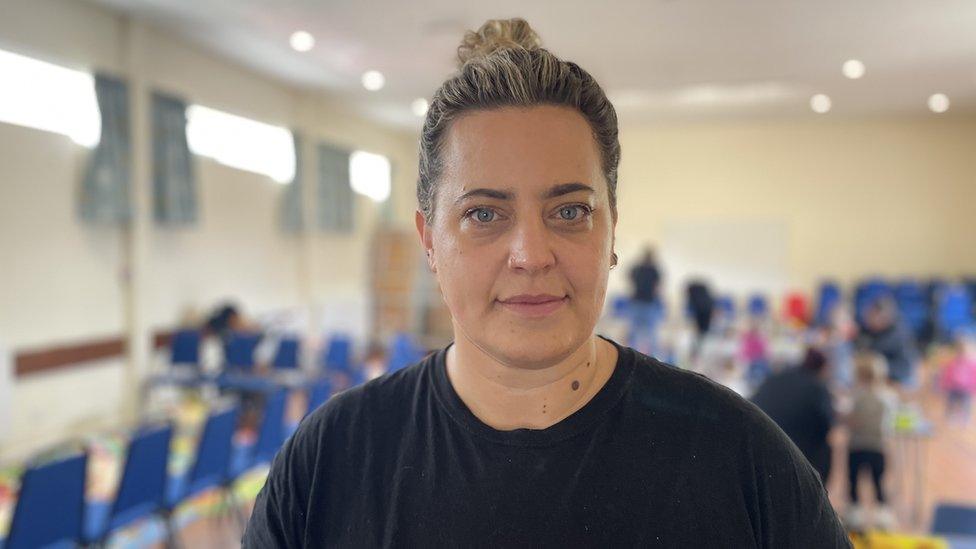
Jade Gilbert said she and her husband had been "working, working, working" to try to earn enough to pay higher mortgage repayments
Her husband has worked overtime and Mrs Gilbert said she had tried to take on new clients.
"We've been working, working, working trying to get everything we can to make sure we can keep a roof over our heads."
She says the family will "have nothing left at all" as "every penny that we have is going into our house".
If rampant energy costs and soaring inflation were in the first wave of the cost of living crisis, increasing interest rates – brought in to control inflation – are its second chapter.
Mid Bedfordshire is particularly exposed.
The constituency has a higher proportion of homes owned with a mortgage than almost anywhere else in England and Wales.
According to the 2021 census, 39% of all homes are mortgaged - the third highest rate.
Is this a political issue and should those in power be doing more to help?
"One hundred per cent I think they should be doing more – for everybody, not just ourselves, but for people who can't get on the ladder," Mrs Gilbert said.

'I've been sworn at, I've had people crying'
The Bank of England has raised interest rates 14 times since December 2021.
Wendy Malczyk is a mortgage advisor with Cogent Financial Planning in Shefford, on Mid Beds' eastern edge.
She said the past year had been "quite traumatic" for some clients.
Those with mortgages of around £100,000 to £150,000 face paying between £250 and £300 extra a month, while those owing around £400,000 could see payments £1,000 higher, Mrs Malczyk said.
"I've been sworn at, I've had people crying – feel like a social worker quite a lot of the time, but that's fine, because that's what we do here," Mrs Malczyk said.
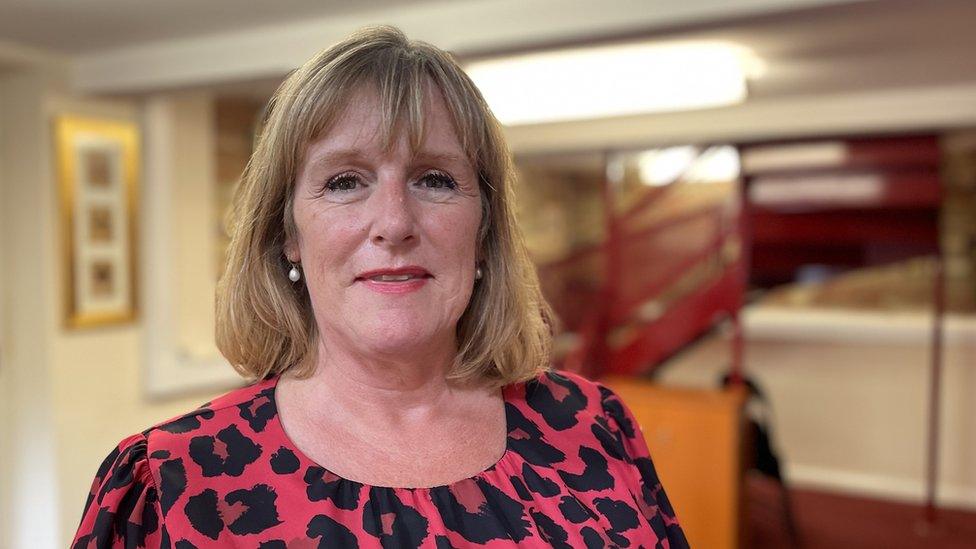
Wendy Malczyk is hopeful more lenders will reduce mortgage rates after the Bank of England held interest rates in September
Most people "suck it up and actually go 'I'm going to have to find it from somewhere'," she added.
If they cannot afford the higher payments, Mrs Malczyk advises speaking to their lender.
Several banks and building societies signed up to a Mortgage Charter, which allows borrowers to pay interest-only for six months or to extend the length of their mortgage.
Lenders also agreed not to force anyone from their home within a year of their first missed payment.
For those opting to go interest-only, Mrs Malczyk asks the question: "What happens at the end of the six months?"
"If you're in a two-year fixed, you've got another 18 months of higher payments.
"You've not paid your capital, so you'll have an even higher payment."
What are some of the candidates saying about this and other issues in the by-election? The race to replace Nadine Dorries in charts

'More families struggling to cope'
Katrina Widdicks has been fundraising in Mid Bedfordshire for four years.
The initial aim was to send two local children whose parents had died on holiday.
After that, she raised money for a therapy room in a local school to support children's mental health.
Now, the Heart of Marston, which Mrs Widdicks recently registered as a charity, is working to relieve the cost of living.
Mrs Widdicks, 49 and a registered childminder, said when "Covid struck" she learned of "more and more families that were desperately in need" in Marston Moretaine.
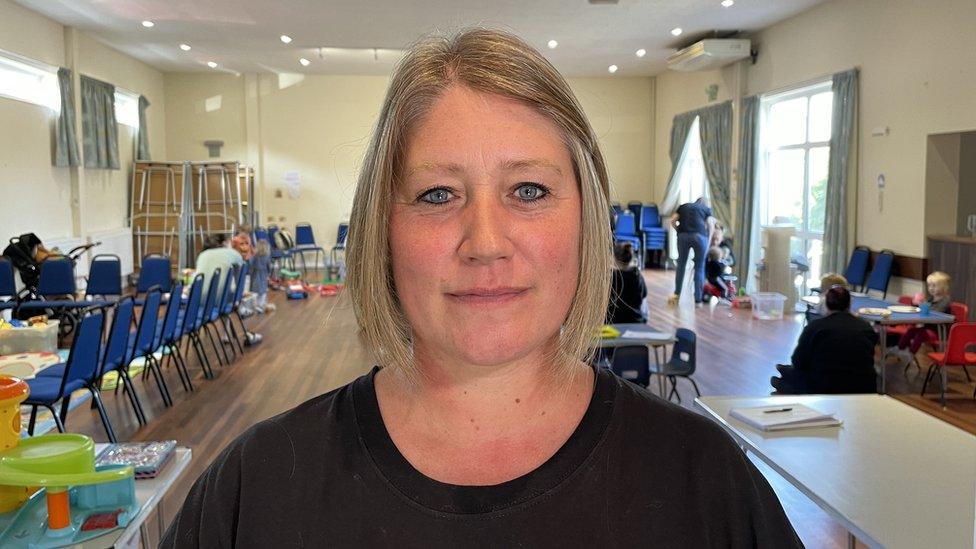
On the surface Mid Bedfordshire looks affluent, but Katrina Widdicks said she was "shocked" by the level of need
"I think I was quite naïve – I thought living in a village we wouldn't have those sorts of problems," she said.
"But yeah – very shocked – shocked to hear that there were people who didn't have beds, children sleeping on the floors – shocked to hear that children were going to school without having breakfast and people not being able to pay their bills."
Mrs Widdicks said rising mortgage costs were pushing some families' budgets hard.
"There were families that were OK and then obviously with the interest rates going up, they're now struggling to pay their mortgages, so all of a sudden, there's more families that are struggling to cope."

'Do I live with my parents forever?'
Kayleigh Wrigg, 28, is a self-employed laser hair removal therapist. She lives with her mum, step-dad and brother in a village outside Ampthill.
Ms Wrigg and her partner have been trying to save £40,000 towards a house, but four years on rising costs in her business mean the dream feels further away.
"Everything has absolutely gone up – literally everything has gone up," she said.
Seeing interest rates rising has been "terrifying".
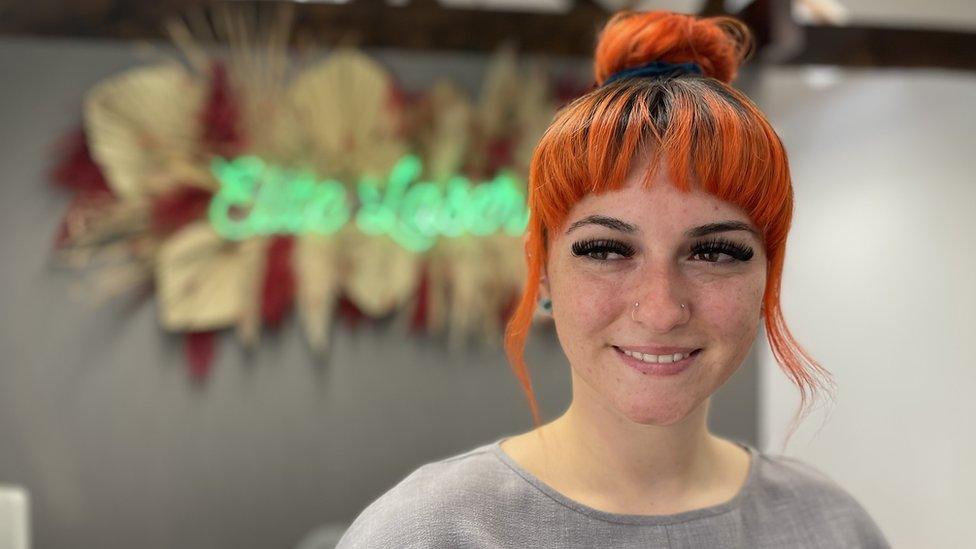
Kayleigh Wrigg wants to get on the housing ladder and move out of her parents' home
"I do feel every time we take a step forward and we're closer to saving that bit more, prices have then gone up that bit more, so we're no nearer," she said.
"I've always relied on the fact that I have a good job – I work hard, I'll be able to afford very normal things like a roof over my head and paying all the bills and maybe even a little bit left over for holidays.
"But now every sort of little pocket is not doing as well and it is scary to know, like where will we be in a year's time, two years' time.
"Do I live with my parents forever?"

Follow East of England news on Facebook, external, Instagram, external and X, external. Got a story? Email eastofenglandnews@bbc.co.uk, external or WhatsApp us on 0800 169 1830
- Published4 October 2023
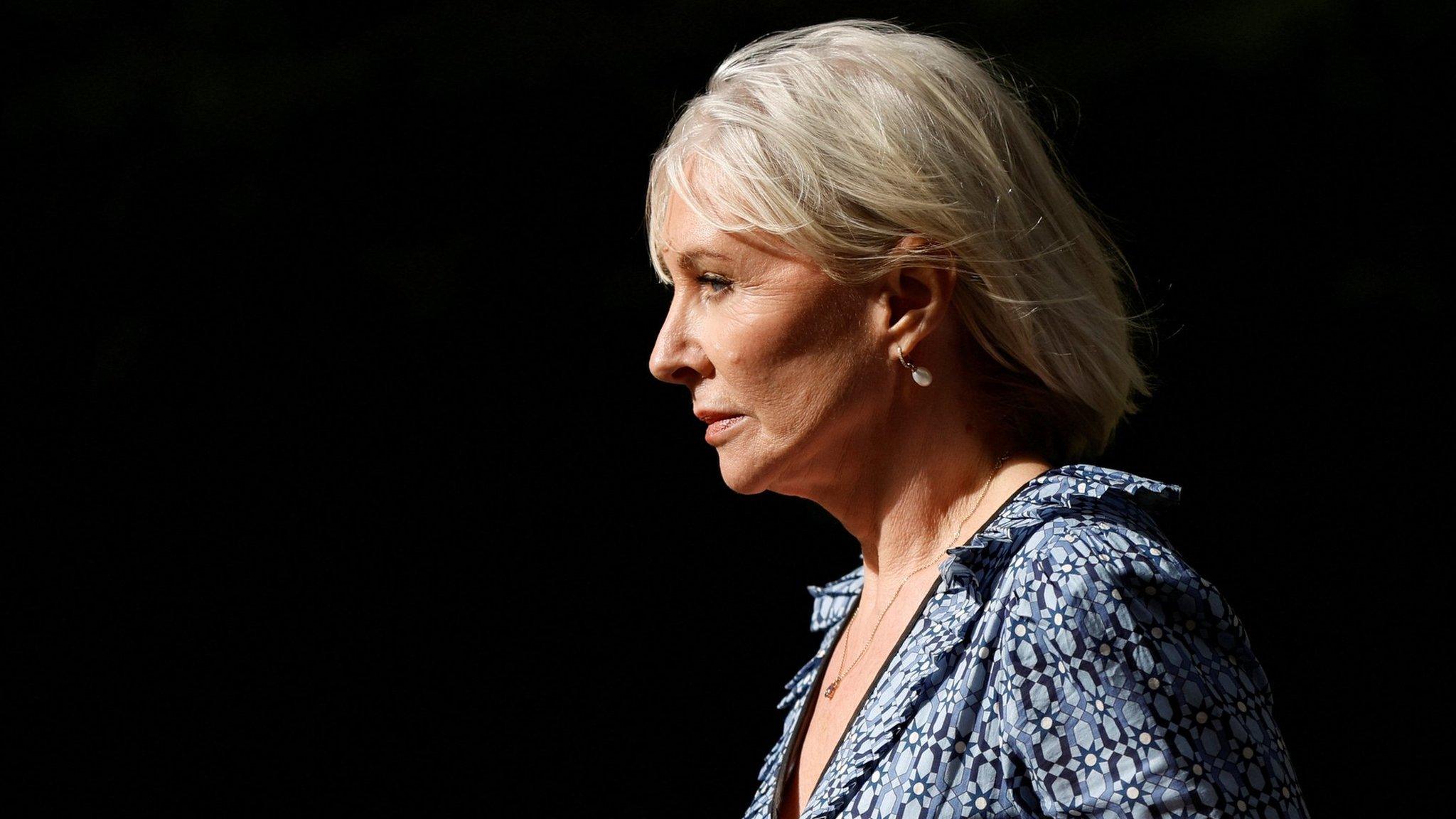
- Published13 October 2023
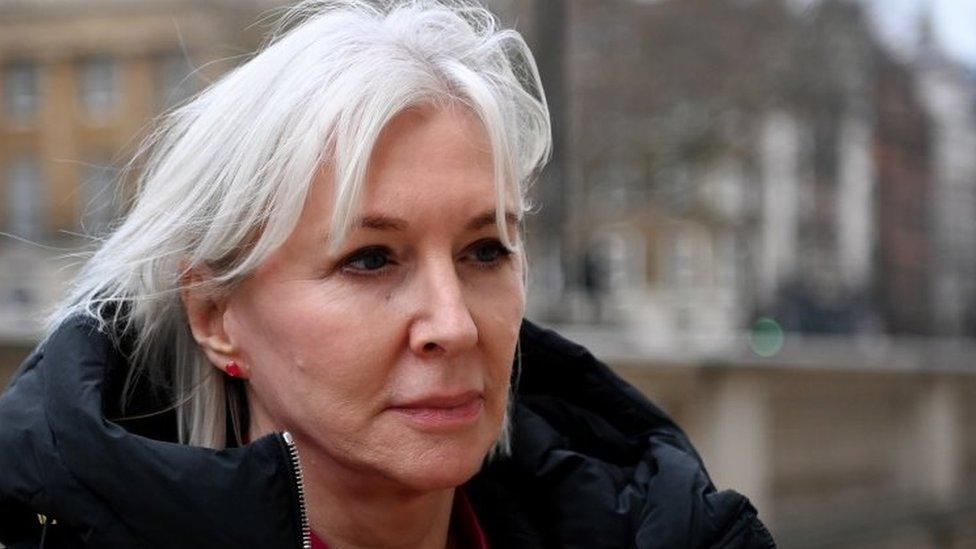
- Published27 August 2023
